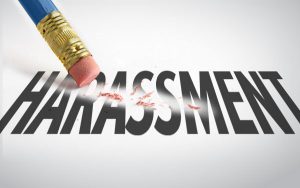Leaders from scientific societies, government agencies, and academia come together to discuss sexual harassment in the sciences
12 September 2016
WASHINGTON, DC – More than 60 leaders in science from academia, government agencies, and professional societies came together recently to address the challenge of sexual and gender-based harassment on campus, in the field, and at scientific meetings. The American Geophysical Union convened the workshop titled, “Sexual Harassment in the Sciences: A Call to Respond,” which was co-sponsored by the American Association for the Advancement of Science, American Chemical Society, American Geosciences Institute, Association for Women Geoscientists, and Earth Science Women’s Network.
Recent high-profile cases in the news have shed light on the issue of sexual harassment in science. The participating organizations intend to release a set of guiding principles and outcomes by the end of 2016 to help scientific societies, academic institutions, and other organizations improve workplace climate, better respond to sexual harassment, and better support its victims. The workshop, held on September 9, was funded by the National Science Foundation.
- Perspectives from the University of California Joint Committee of the Administration and Academic Senate on Sexual Misconduct
- Understanding the legal landscape
- The sociological context and call to action
- Establishing the desired climate and culture on campus
- Establishing the desired climate and culture in the field
- Role of scientific societies in establishing the desired climate and culture in science
- Developing guiding principles for changing the culture and climate of science
Leaders of participating organizations offered the following comments:
“Sexual harassment in research settings is an affront to the profession of science and violates our ethical standards. As federal agencies have oversight authority for their funded awards, their Inspectors General should broaden the definition of research misconduct so they can investigate allegations and determine corrective actions that universities appear unwilling to take,” said Celeste Rohlfing, AAAS’ Chief Operating Officer.
“Our ACS Academic Professional Guidelines clearly state that it is the right of every individual working in the chemical sciences to have equal treatment and opportunity regardless of gender, race, national origin, religion, age, sexual orientation, gender expression and gender identity, physical disability, or any other factor not related to their position,” said Mary Kirchhoff, director of the ACS Education Division. “This right includes a workplace free of intimidation, coercion, exploitation, discrimination, and harassment – sexual or otherwise.”
“Harassment of any kind, in any workplace or place of learning is unacceptable. Friday’s meeting was a great first step in raising awareness of a problem that has plagued the scientific community for many decades,” said AGI Executive Director (and AWG Past-President) Allyson K. Anderson Book.
“Sexual harassment is an unacceptable, yet persistent issue facing the scientific community. We need to work together to create a safe, supportive environment and culture that encourages young scientific talent rather than deterring it,” said Eric Davidson, President-elect, American Geophysical Union. “For scientific innovation to flourish, the community needs to take a powerful stance against sexual harassment and we call on our friends across other scientific organizations, research institutions, and societies to join us. It’s our responsibility to provide members, employees, and constituents with the awareness and tools needed to create an inviting, safe culture for science.”
“Sexual harassment has always been a barrier for professional women scientists, and a major deterrent to female students who are considering a career in the sciences. It is appalling that it has been prevalent in the science community for so long, and we are thrilled to finally see scientific societies and institutions coming together to address and act upon the important role we play in helping to put an end to this. I hope to see other societies and organizations rise up and join us in this effort and look forward to seeing the progress we make over the next few years,” said Blair Schneider, Association for Women Geoscientists President.
“Harassment endangers not only the personal and professional well-being of individuals but of our entire community, and is one of the reasons many young researchers leave academia and science altogether. Our hope is that professional societies can lead a cultural change and pressure academic institutions to take this problem seriously, so that everyone who wants to be in science can stay in science,” said Erika Marín-Spiotta, Leadership Board Member, Earth Science Women’s Network.
For more information, links to policy statements, and other resources related to sexual harassment in the sciences please visit: stopharassment.agu.org.
###
Caitlyn Camacho
[email protected]
202-777-7423
AAAS Contact:
Anne Hoy
[email protected]
202-326-6696
ACS Contact:
Sue Morrissey
[email protected]
202-872-4498
AGI Contact:
Maureen Moses
[email protected]
703-379-2480, ext. 244
